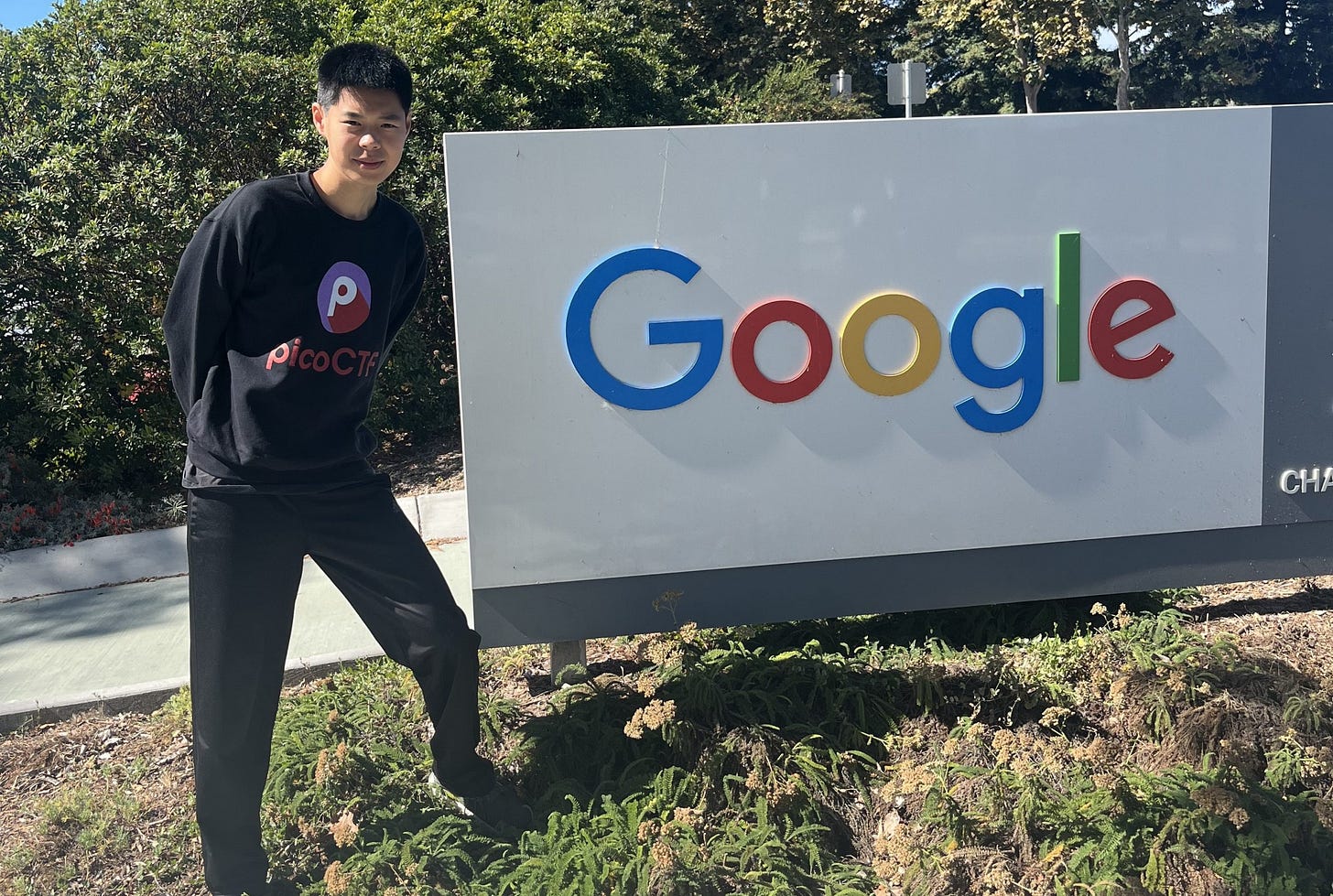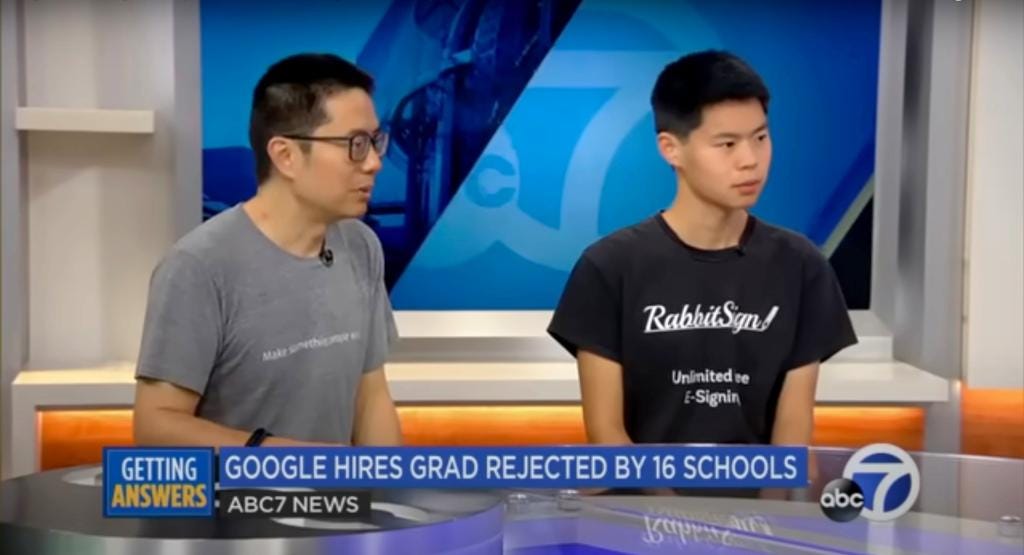Chinese-American prodigy Stanley Zhong was rejected by top universities because of his Asian identity
Executive Summary
In 2023, 18-year-old Stanley Zhong—1590 SAT, 4.42 GPA, USACO Platinum, MIT Battlecode runner-up, Google L4 invitee—was rejected by 16 of 18 elite U.S. universities. His father’s subsequent pro se lawsuits allege covert anti-Asian bias in college admissions. This landmark case raises urgent questions about transparency, fairness, and the future prospects of highly qualified Asian-American applicants.
Background: An Unprecedented Profile
Academic Credentials: SAT 1590/1600; weighted GPA 4.42 with extensive AP coursework.
Competitive Achievements: Top 1% in USACO; Google Code Jam semifinalist; second place in MIT Battlecode.
Entrepreneurship & Industry Recognition: Founded RabbitSign, a free e-signature platform; received a full-time “L4” software engineering offer from Google at age 18—typically reserved for PhD-level candidates.
Despite this résumé, Stanley was turned away by institutions including Stanford, MIT, Harvard, Carnegie Mellon, and Cal Poly. He ultimately enrolled at UT-Austin, but the string of rejections prompted his family to seek legal recourse.
The Legal Challenge: Probing Admissions Practices
In February 2024, Stanley and his father, Nan Zhong, filed pro se lawsuits against:
University of California system
University of Washington
University of Michigan
Cornell University
They argue that, despite the 2023 Supreme Court decision barring race-based affirmative action, highly qualified Asian-American applicants face hidden hurdles. The suits cite:
Title VI of the Civil Rights Act and the California Constitution’s equal-protection clause.
Statistical Evidence: UC’s Asian-American admission rate fell from 38% in 2009 to 32.2% in 2022, while Hispanic and Black rates climbed without comparable test-score gains.
Transparency Demands: Independent oversight of admissions data, public apologies, and mandatory anti-bias training for admissions officers.
A preliminary hearing in the Cornell case is set for June 25, 2025; other institutions face staggered court dates through the year.
AI and the “David vs. Goliath” Dynamic
Without formal legal representation, the ZHONGs turned to artificial intelligence to draft complex legal briefs. “AI may be the sling that levels the playing field against well-funded universities,” says Nan Zhong. Their approach highlights broader access issues—not only to elite education but to the tools of justice itself.
Broader Implications for Admissions Equity
Data Transparency Is Imperative
Institutions should regularly publish anonymized, aggregate applicant and admittee data by race, SAT/GPA, and extracurricular profile.Holistic Review Under Scrutiny
“Comprehensive review” must be audited to ensure no group is disproportionately disadvantaged by subjective criteria.Policy Impact Monitoring
Diversity initiatives require ongoing evaluation to detect and correct unintended impacts on high-achieving applicants from any background.
Looking Ahead
Stanley remains at Google and has paused his college plans. He may reapply when admissions processes become more transparent and equitable. Meanwhile, his case has motivated other Asian-American families to demand accountability. For admissions officers, the Zhong lawsuits serve as a warning: transparency and fairness are no longer optional—they are essential to institutional credibility.




